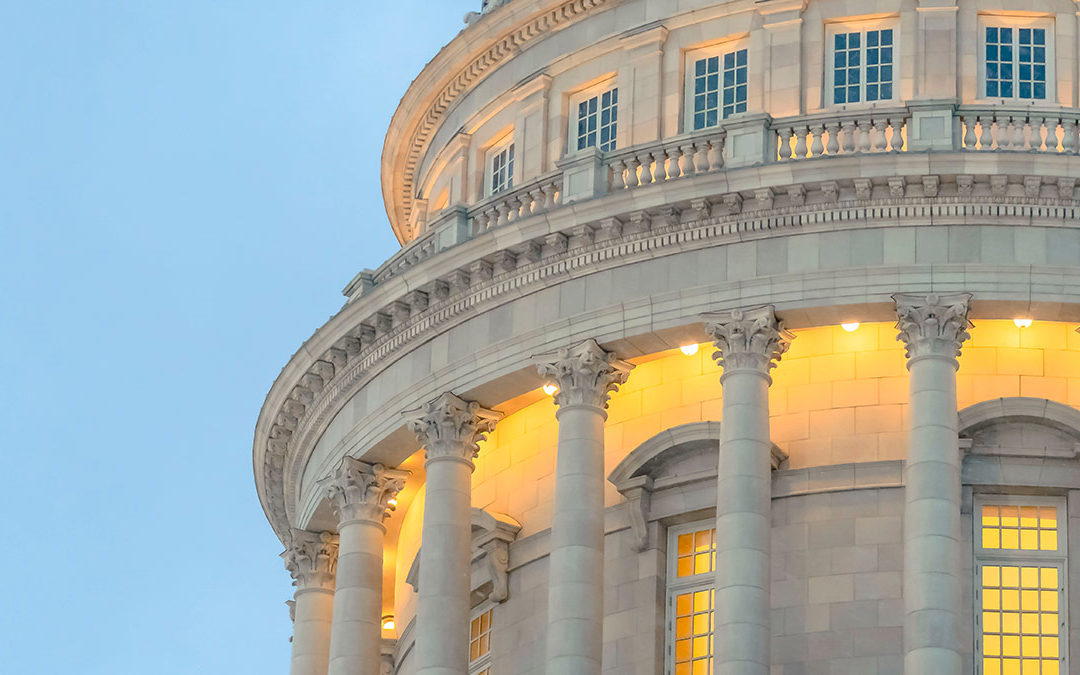In its October meeting, the Tax Restructuring and Equalization Task Force, after months of public input and weighing options, began taking action on proposals that were placed before it.
The Task Force reviewed five options from various members of the Task Force, with the proposals ranging from a net tax increase proposal of $680 million from Rep. Joel Briscoe to a net decrease of $420 million from Sen. Lincoln Fillmore.
Other proposals included adding a statewide property tax for infrastructure to the creation of a carbon tax. While the five proposals varied differently, we will focus on the Chairs’ proposal, which would be a net tax decrease of $75 million.
The Chairs’ proposal, which is generally supported by your Taxpayers Association, decreases the income tax, restores the sales tax on food, creates an income tax credit for a grocery tax and social security income, and removes several sales tax exemptions.
This proposal requests that the income tax be lowered by 0.25%, which would bring Utah’s income tax rate to 4.7%. While your Taxpayers Association strongly favors a cut to the income and corporate income tax rate, we feel that policymakers have plenty more room for an even larger income tax cut, such as the one proposed in Sen. Fillmore’s proposal.
We commend the Legislature for setting aside $75 million in the 2019 Session for a tax cut. According to the latest Governor’s Office of Management and Budget revenue summary, based on Tax Commission data shows a $107 million in new net reserves. This is a total of $282 million that could be used for an even larger income tax cut.
Sen. Fillmore calls for a cut to the income tax down to 4.5%, which would bring Utah more in line with neighboring states and others around the country that are starting to mirror and even undercut Utah in tax cuts.
Returning to the Chairs’ proposal, it also seeks to restore the sales tax on food, which your Taxpayers Association has been calling for since its passage in 2006(?). The restoration of the sales tax on food creates a stable source of funding for the state, which has been one of the Task Force’s guiding principles. In addition, it creates an easier compliance for grocers and other retailers.
Tacked on to this is the enactment of a grocery tax credit for low- to middle-income earners. The tax credit would be a $100 refundable income tax credit per household member, with a phaseout rate of .02% per dollar above the following thresholds: $30,000 for one exemption, increasing by $10,000 per household member.
The grocery tax credit would be $150 per exemption if the claimant has income less than $15,000.
Keep in mind, recipients of SNAP or WIC benefits do not pay any sales tax on unprepared food items. Your Taxpayers Association did some calculations and found that if a family spends $45 a week on groceries, the increased state sales tax would require them to pay an additional $1.39 per week in sales tax for an increase of $72.54 per year (3.1% additional tax from the current 1.75% to 4.85%). Their total state and local sales tax on food paid in a year would be approximately $170.23. A $100 income tax credit per dependent is given, a family of four would actually have $229.76 more in their pocket each year ($400 credit vs $170.23 paid in sales tax).
The Chairs’ proposal also more closely ties user fees to the service provided, in this case, transportation. The proposal would remove the sales tax exemption on motor fuel and diesel fuel and would be imposed at the distributor level at the statewide sales tax rate of 4.85%. The Chairs’ proposal does keep in mind that the tax would be used to fund transportation until another, more viable options emerges, such as a road usage charge. Your Taxpayers Association strongly supports moving towards user fees when it comes to transportation.
Their proposal also seeks to broaden the sales tax base by levying sales taxes on certain services, including maintenance and repair of real property as well as peer-to-peer ride sharing (Lyft, Uber, etc.), and streaming media. Your Taxpayers Association is grateful that many elements of tax pyramiding have been cut out of the proposal following our input, and encourage the Task Force to look at the elimination of all tax pyramiding when putting together a final proposal.
The Task Force is expected to release a proposed piece of legislation that would contain these changes in early November, and your Taxpayers Association is excited to continue to provide input to the Task Force to refine and ensure tax reform is keeping with Utah’s tradition of being a great place to work and live well into the future.

